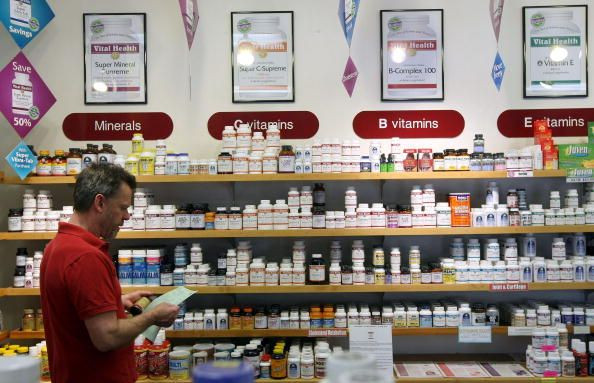Dietary Supplements: FDA Begins Overhauling Standards And Policies

The U.S. Food and Drug Administration (FDA) will be developing new policies for the dietary supplement market. This is the first overhaul of the regulations in more than 25 years since the Dietary Supplement Health and Education Act.
The FDA does regulate dietary supplements, but over time, the market has expanded, making it necessary for more regulations to be enacted, it said. According to the FDA, dietary supplements was once a $4 billion industry with about 4,000 unique products that has now ballooned to a $40 billion industry with up to 80,000 different consumer products.
Under the Dietary Supplement Health and Education Act, producers of dietary supplements are held to standards for the manufacture and labeling of their products, which the FDA is looking to make stricter. It has shown concern over “dangerous products that put consumers at risk.”
With the growth of the dietary supplement industry, more problems have arisen in the segment with the marketing of dangerous and misleading products, which can impact consumer health, it said. The FDA is looking to give consumers “access to safe, well-manufactured, and appropriately labeled products.”
“One of my top goals is ensuring that we achieve the right balance between preserving consumers’ access to lawful supplements, while still upholding our solemn obligation to protect the public from unsafe and unlawful products, and holding accountable those actors who are unable or unwilling to comply with the requirements of the law,” FDA Commissioner Scott Gottlieb, M.D. said in a statement.
With its new plan, the FDA will enact key steps to ensure the safety of dietary supplements to the consumer level. The plan involves “communicating to the public as soon as possible when there is a concern about a dietary supplement on the market, ensuring that our regulatory framework is flexible enough to adequately evaluate product safety while also promoting innovation, continuing to work closely with our industry partners, developing new enforcement strategies and continuing to engage in a public dialogue to get valuable feedback from dietary supplement stakeholders,” according to Gottlieb.
Under the new plan, the FDA has already sent 12 warning letters and five online advisory letters to companies that produce dietary supplements that are being illegally marketed. These dietary supplements specifically affect Alzheimer’s disease as they have allegedly made unproven claims that their products can prevent, treat or cure the disease and other health conditions.
The companies that are marketing the supplements did not seek FDA approval, which is required under the Dietary Supplement Health and Education Act. The FDA has also taken action against companies that have sold dietary supplement products that claim to treat cancer and opioid addiction, it said.
“At the FDA, we have an obligation to ensure that we’re using the resources that we have as efficiently and effectively as we can, and as we engage in discussions about whether our existing resource levels are adequate, I take that obligation very seriously,” Gottlieb said.
© Copyright IBTimes 2025. All rights reserved.





















